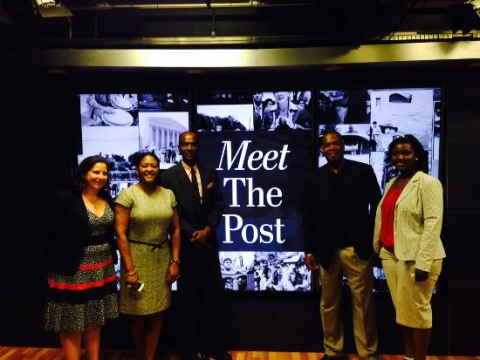
All five professors who participated in the 2014 fellowship program implemented concrete changes in their classrooms, grooming students to work across all media platforms.
Building on last year’s success, the International Center for Journalists (ICFJ) is hosting a new round of Back in the Newsroom Fellowships this summer. The program places journalism faculty from colleges and universities with large minority student populations in digitally savvy newsrooms for a summer.
The fellowships are designed to address the mismatch between the needs of media companies and the curriculum and teaching techniques in journalism departments at these universities.
The fellowships start on May 27, 2015 in Washington, D.C., with a two-day orientation. The professors will then spend nine weeks in their host newsrooms, where they will focus on multimedia and multiplatform reporting, data journalism, social media and other ways media organizations engage audiences.
The fellows return to Washington on July 30-31 to share ideas on how they will upgrade their curriculum and apply what they learned during the program at their universities.
In 2014, five journalism professors from historically black colleges and universities (HBCU) spent the summer at The Los Angeles Times, CNBC, USA Today, The Wall Street Journal and The Washington Post.
The professors’ experiences led them to change their teaching methods and syllabi. All five implemented concrete changes in their classrooms, grooming students to work across all media platforms. The contacts forged during their fellowships helped create a pipeline for students to work as interns or find jobs at these major news outlets.
The deadline for this year’s Back in the Newsroom Fellowships program is April 20, 2015.
The Back in the Newsroom Fellowships program is funded by the John S. and James L. Knight Foundation.